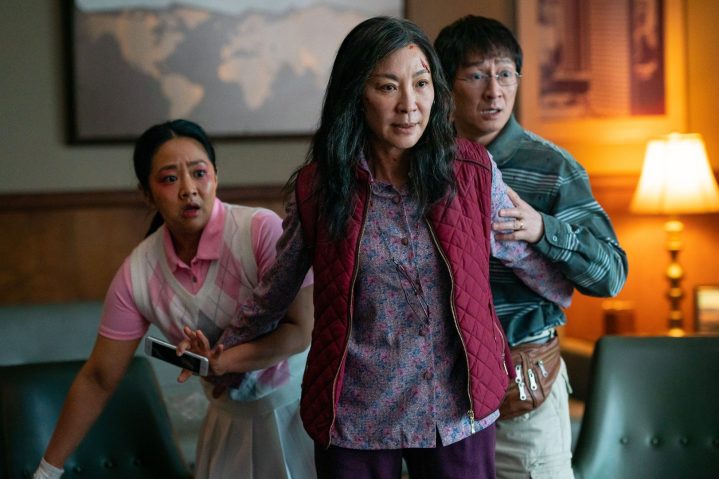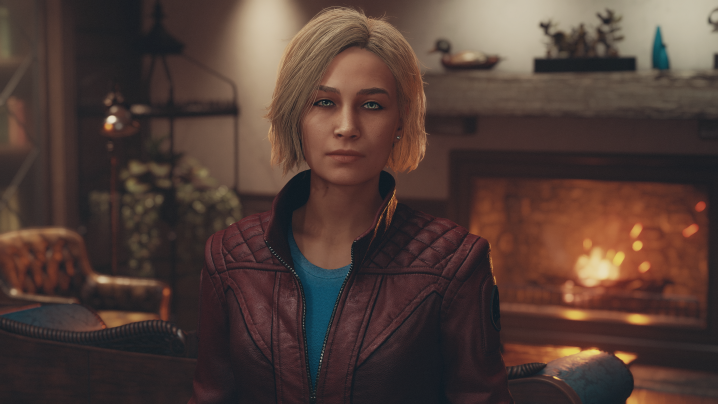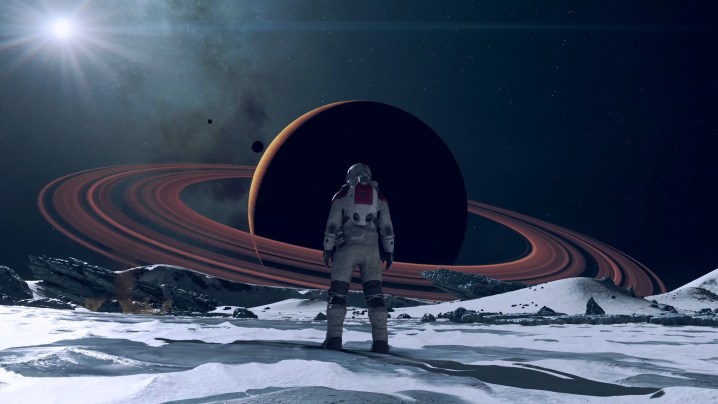This article contains spoilers for Starfield and its ending.
Going into Starfield, I was expecting some sci-fi twist, but I’ll admit that I was still somewhat surprised when the Starborn revealed that Starfield is a game about the multiverse.
Trepidation followed. While the idea of there being multiple universes has existed in fiction for some time, multiverse stories have seen an uptick in their popularity recently, thanks to films like Spider-Man: Into the Spider-Verse and Everything Everywhere All at Once, but some pieces of media haven’t handled the concepts as well.
Just this year alone, films like Ant-Man and the Wasp: Quantumania, Spider-Man: Across the Spider-Verse, and The Flash all put the multiverse front and center in their stories, to varying degrees of success. It’s a sci-fi concept that’s starting to teeter on the edge of overuse, so I was worried that Starfield would feel a bit derivative and sloppy in its own use of the idea. That ended up not being the case, though, as Bethesda Game Studios found creative ways to tie it into the thematic undertones of this game about humanity’s urge to explore space. Better yet, its actually tied into a meaningful gameplay system that forever changes Starfield once you finish the game.
What makes a good multiverse story
When done right, multiverse stories can be a powerful tool for analyzing the inevitability of some aspects of humanity. Spider-Man: Into the Spider-Verse uses the multiverse to demonstrate that anyone can be Spider-Man and gives Miles touchpoints on his personal journey to discover that he’s not alone and deserves to be a hero as much as anyone else. In Everything Everywhere All at Once, Evelyn needs to see all the possibilities of her life to learn to appreciate what she already has. Both films thematically require the use of the multiverse to have the most significant impact.

Meanwhile, bad multiverse stories like The Flash falter by using the multiverse as little more than a tool, often for fan service. The film’s now infamous cameo-filled multiverse scene during its climax doesn’t do much to service the plot other than establish universe-ending stakes, which audiences should already understand because of prior narrative beats. Seeing Barry interact with another version of himself is one of the movie’s stronger elements, but it doesn’t feel like an alternate version of Barry as much as it does a past one. The Flash didn’t need to be a multiverse movie — it could’ve been a time travel one — but it prioritized the cameo and franchise opportunities a multiverse provides, not the thematic opportunities.
That brings me to Starfield, which could have easily gone either way. Bethesda Game Studios could have used the multiverse to shoehorn in lots of The Elder Scrolls and Fallout references or as an excuse to explain why the bad guys are so powerful. Instead, Starfield uses the multiversal revelation to bolster and enhance many of the themes it was already addressing.
Making the multiverse matter
The whole story of Starfield centers around how humanity’s ambition to explore and chart the unknown comes at grave personal costs. It reinforces this idea at all narrative levels. On a more personal one, we learn through Sarah Morgan’s companion quest that she’s dedicated her life to exploring the universe and running Constellation, but that’s come at the cost of her never being able to have a close personal relationship. As someone who has often prioritized their work life over their social life, I could relate.

In terms of the worldbuilding and main story, we eventually learn that humanity’s creation of the Grav Drive — which made space travel easier and ensured humanity could live on forever by exploring and colonizing other planets — ruined Earth’s atmosphere. This means that humanity lacks a true home and still carries forward all of the issues it had on Earth when it comes to military and religious conflict.
Those alone show an impressive, scaled comprehension of Starfield’s central theme, and the introduction of the multiverse adds an even deeper layer. Humans are not just content in exploring the universe; they must conquer the multiverse, no matter the cost. In doing so, they are reborn as Starborn and gain more power than they ever had before, but they also lose a bit of what makes them human.
We first see this with The Hunter and The Emissary, as both act detached and violent when they first meet the player. They are more interested in reaching The Unity than sticking around and finding out what makes their current universe special. They’re addicted. I was dismissive of those Starborns’ personal struggles during my initial playthrough, but once I entered The Unity and became a Starborn, I found myself acting the same way on a second playthrough.
The most depressing New Game Plus ever
Cleverly tying the main story and themes to gameplay, New Game Plus in Starfield has players technically controlling the same character they did before, just as a more powerful Starborn in a different universe. After being reborn the first time, I confidently strutted into The Lodge as the game told me to. That confidence quickly melted away when no one recognized me, was confused at what a Starborn was, and didn’t trust me — including my pal Sarah Morgan.

I was uncomfortable, cold, and isolated, even though I technically had a chance to experience everything Starfield from the start again. I didn’t do that, though. I chose to skip the story and then speedran the process to collect all of the artifacts, get to The Unity, and be reborn in a universe yet again. I have continued that into a third playthrough. Starfield was telling me throughout my whole adventure that exploring the vastness of the universe (and the multiverse) isn’t fulfilling on its own; it’s doing something you enjoy with people that you care about that is. I didn’t truly understand it until I put myself in that situation through my own choices and gameplay.
While Starfield’s use of the multiverse might initially seem derivative of a current narrative trend because it’s a popular way to tell stories, it’s far from it. The story Starfield tells, and the main narrative themes it’s hoping to express, need the sci-fi backdrop to reach their full effect. As a result, it’s a multiverse story I’ll hold in high regard, especially as these sci-fi elements become more common in the video game space.
Starfield is available now on Xbox Series X/S, and PC.



